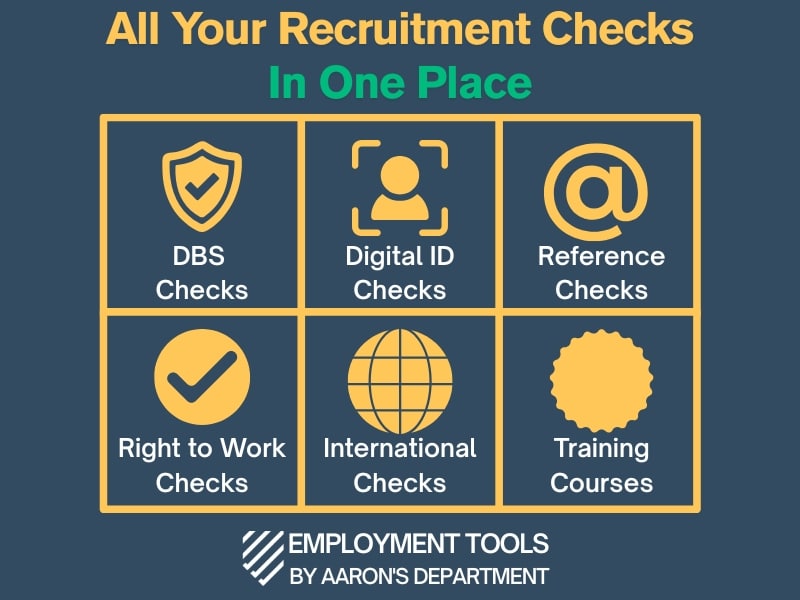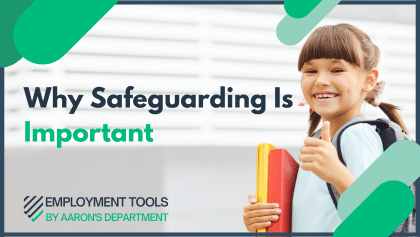Introduction – Why Safeguarding Is Important
Safeguarding is more than a set of policies. It is a shared responsibility that ensures people, particularly those who are vulnerable, are protected from harm and treated with dignity. Whether you work in education, healthcare, or the voluntary sector, safeguarding sits at the heart of a safe and supportive environment.
In the UK, safeguarding is backed by law and built into many aspects of daily practice. Below, we explore five key reasons why safeguarding is so important and what employers need to do to stay accountable. At a glance, safeguarding is important because it is used to:
– Protect vulnerable people from harm,
– Prevent crime and exploitation,
– Promote equal opportunities,
– Build trust and confidence,
– Uphold legal obligations.
Here, we’ll cover the 5 reasons why safeguarding is important and how everyone can play their part.
What Is Safeguarding?
Safeguarding is the process of protecting individuals from abuse, neglect, and exploitation. It is about creating safe environments, recognising risks, and acting quickly when concerns arise. In practical terms, this means having clear policies, trained staff, and effective recruitment procedures in place.
The Care Quality Commission (the regulatory body overseeing care & healthcare providers) describes safeguarding as:
“Safeguarding means protecting people’s health, well-being and human rights, and enabling them to live free from harm, abuse and neglect. It’s fundamental to high-quality health and social care”

5 Reasons Why Safeguarding Is Important
1. To Protect Vulnerable People from Harm
At its core, safeguarding is about preventing harm. This includes physical, emotional, and sexual abuse, as well as neglect and financial exploitation. Children, the elderly, and those with disabilities often face higher levels of risk, and it is up to organisations to ensure they are properly protected.
In education, safeguarding involves recognising signs of abuse and creating systems that support early intervention. In care settings, it means ensuring residents are safe, respected, and supported in their daily lives. With proper safeguarding measures in place, individuals are more likely to feel secure and confident in their environment.
2. To Prevent Crime and Exploitation
Safeguarding also contributes significantly to the prevention of crime and exploitation. By identifying and addressing vulnerabilities, we can reduce the opportunities for criminals to take advantage of those in need. This protects individuals and contributes to everyone’s overall safety by preventing crime.
In cases of child exploitation, safeguarding measures help identify and support young victims, leading to the prosecution of offenders and the disruption of criminal networks. Similarly, safeguarding protects the elderly from financial scams, neglect and abuse, preserving their security and peace of mind. By preventing exploitation, we create a safer environment for everyone.
By not taking safeguarding measures, it is near-inevitable that horrible incidents will occur. For example, a shocking BBC investigation into Hesley Group care homes found systemic safeguarding failures affecting children and adults with learning disabilities. Despite concerns raised, 99 incidents were identified at one site and referrals to the DBS were not made.
3. To Promote Equal Opportunities
Safeguarding is about fairness. Everyone deserves access to services, support and opportunities without being held back by fear or bias.
When organisations treat safeguarding as integral, they help ensure that age, disability, background or other factors do not lead to exclusion or maltreatment.
This proactive approach reduces discrimination and supports inclusion across the board.
4. To Build Trust and Confidence
A trustworthy safeguarding culture encourages staff and service users to speak up when concerns arise – and feel confident they will be heard.
When families, the public and employees see visible and effective safeguarding, it builds confidence in your organisation.
Creating confidence requires clear reporting routes, transparent processes and leadership that takes concerns seriously.

Legal Obligations
Finally, safeguarding is essential in meeting legal obligations. The UK has enacted laws and regulations that mandate safeguarding measures for organisations working with vulnerable groups. We all have a legal duty to report suspicions of abuse or neglect, and failure to do so can result in criminal charges.
There are many sectors, such as education and healthcare, which require staff to undergo DBS Checks before they can start their role. DBS Checks play an important part in the role of safeguarding, as they can help with each of the 5 reasons why safeguarding is important.
Key legislation and guidance includes:
The Children Act 1989 and 2004
The Safeguarding Vulnerable Groups Act 2006
Working Together to Safeguard Children 2023 guidance
Keeping Children Safe in Education 2025
What Happens If An Organisation Has Poor Safeguarding Policies?
If an organisation has poor or no safeguarding policies, this could lead to:
- Abuse and neglect of Children or Vulnerable Adults being missed.
- An increase in abuse cases.
- Vulnerable people not being treated with respect or compassion.
- Confusion and distress for children or Vulnerable Adults because they have no one to turn to.
In 2022, an Ofsted inspection shut down a children’s home in Bolton following “serious and widespread failures.” One child had lived in squalid, fly‑infested conditions while staff lacked proper childcare qualifications.
More recently, inspectors criticized private children’s homes for disproportionate rates of serious incidents compared with homes run by councils or charities.
How Employment Tools Supports Safeguarding Duties
At Employment Tools, we help you manage safer recruitment from the moment you hire.
We offer:
- Basic, Standard and Enhanced DBS checks
- Automatic Reference Checks
- Free Right to Work reminders
- Compliance Dashboard
- ID Checks
- Right to Work Checks
- International Criminal Checks
- And much more
To ensure there are no delays in important safeguarding duties, all applications received before 4pm (Mon-Fri) are processed the same day. This ensures you can move quickly on hiring while meeting your safeguarding responsibilities.
Whether you work in education, social care, healthcare or the charity sector, our tools support confident, compliant recruitment decisions.

Safeguarding FAQs
Who is responsible for safeguarding?
Everyone plays a part. Employers, designated safeguarding leads (DSLs), staff and volunteers all share responsibility. Your organisation must have clear policies on reporting and response.
How does a DBS check support safeguarding?
It helps identify whether someone is suitable to work with vulnerable people. For details on who legally needs a DBS check, see our eligibility guidance.
What should you do when a safeguarding concern arises?
Report it immediately to the DSL. They should assess risk, document the issue and escalate appropriately to local safeguarding authorities or the police if required.
Final Summary – Why Safeguarding is Important
Safeguarding is of the utmost importance, as it serves to protect vulnerable individuals from harm, promote equal opportunities, prevent crime and exploitation, foster trust, and meet legal and ethical obligations. By prioritising safeguarding measures, we can create a safer and more inclusive society where everyone has the opportunity to thrive, free from harm and neglect.
Employment Tools helps you champion better recruitment and risk reduction – from day one – with tools that protect both people and reputations.
Forward this page!
Further Reading
If you’ve found our post , “Why safeguarding is important” useful, these pages might also be of interest:
- What is a Standard DBS Check?
- Understanding The Different Types Of DBS Checks
- Is There A DBS Expiry Date?
- What Is A DBS Countersignatory?
About The Author

John Schofield-Antoncich
John is an employment compliance specialist with years of hands-on experience in DBS checks and other employment check processes. Having overseen thousands of applications, he’s your trusted source for accurate, up-to-date guidance.
